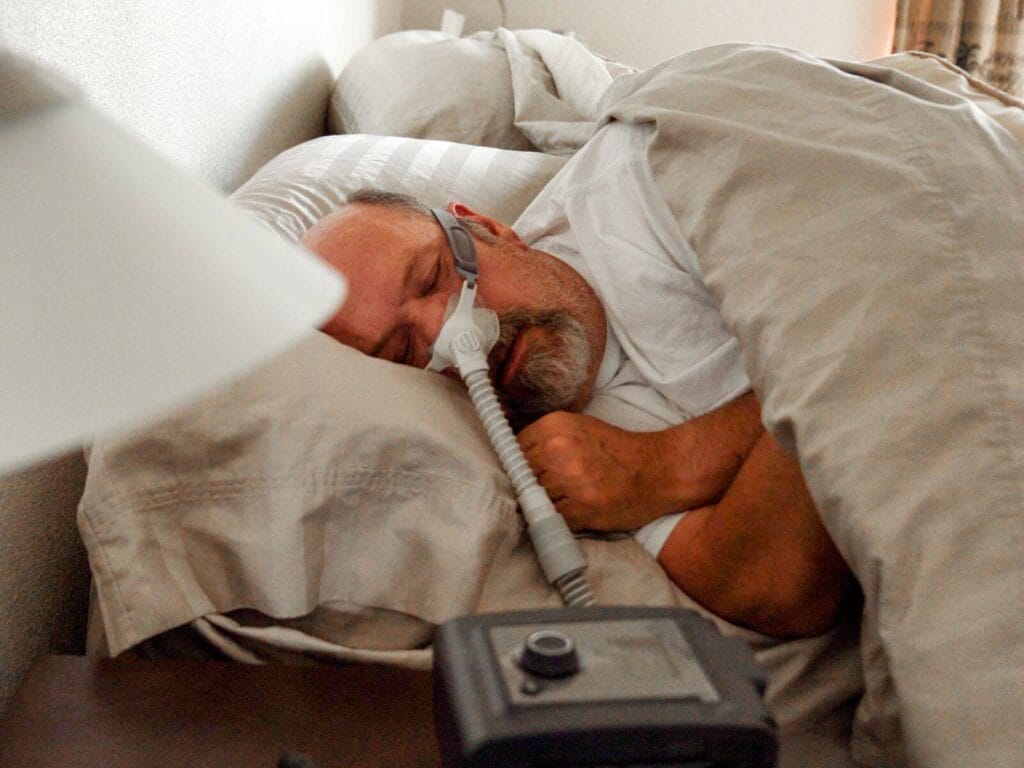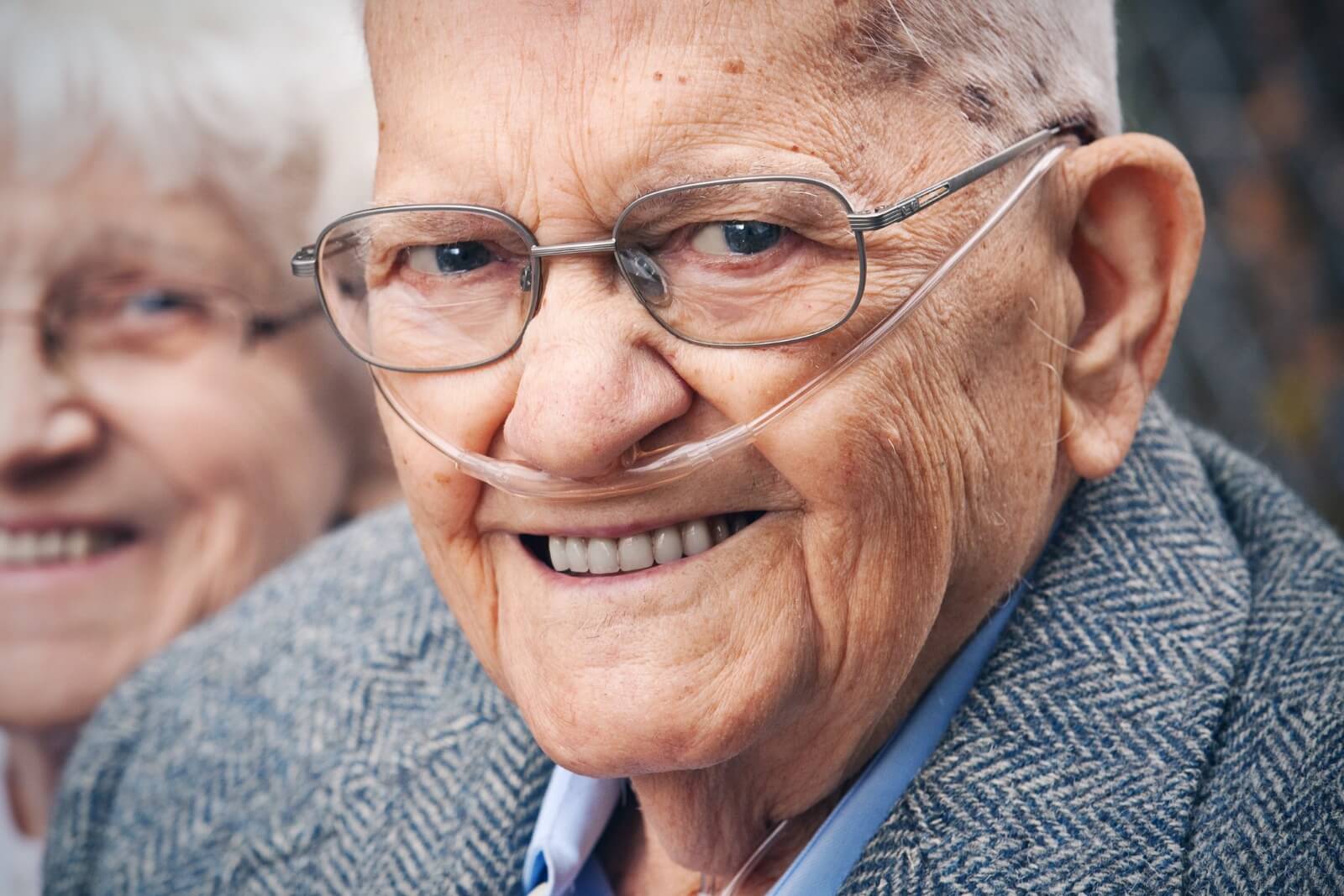
Quality sleep is important throughout all stages of life, but it is especially important as we age because it can lower our risk of developing serious health conditions like high blood pressure, cardiovascular disease, and diabetes. Getting a good night’s sleep can also enhance memory and reduce our risk of falling. Though seniors with sleep apnea may struggle to get quality sleep, a CPAP machine can help. If you’re just starting your research about CPAP machines, you’ve come to the right place. Here’s everything you need to know about this machine, including what it is and how it works, so you can figure out if it’s the right choice for you.
Who is a CPAP machine for?
CPAP machines are for people who are diagnosed with obstructive sleep apnea (OSA). Those with OSA frequently stop and start breathing while they sleep multiple times each night. Interruptions can last longer than 10 seconds, disrupting your sleep and limiting the amount of oxygen your brain and body receive.
CPAP machines are extremely effective in treating sleep apnea. When worn correctly, they can be 100% effective at keeping your airways open so you can get the restorative sleep you need.
How do they work?
A CPAP (continuous positive airway pressure) machine delivers a continuous flow of air through your mouth and/or nose. These machines are specifically designed to treat obstructive sleep apnea by keeping your airways open while you sleep.
All CPAP machines come with:
- A mask that fits over your nose and/or mouth and straps to your head.
- A machine that contains a motor to create the airflow to your mouth and/or nose.
- A tube that connects the mask to the motor and blows air into the mask.
- An air filter that purifies the air that passes through the tube.
CPAP machines work by filtering and pressurizing air and delivering it to your nose and mouth. The pressurized air keeps your tongue, uvula, and soft palate from collapsing into your airway. It reduces snoring and helps you breathe soundly all night long.
An important part of a CPAP machine is the mask that fits over your nose, mouth, or both. Depending on different factors, one type of mask may be better for each person. Here are a few different types of CPAP masks:
- Nasal masks cover your nose. They are recommended for those who move around a lot while sleeping.
- Nasal pillow masks cover only the nostril area. Some options use prongs that fit into the nostrils. They are a popular option for people who wear glasses in bed.
- Full masks are triangle-shaped and cover both the nose and mouth. They are the best option if you have a nasal blockage or breathe through your mouth while you sleep.
- Hybrid masks cover your mouth and use prongs to seal your nostrils so that you get airflow to your mouth and nose without covering the bridge of your nose.
Are all CPAP machines the same?
A CPAP machine is designed to deliver a steady air pressure level, but there are other PAP (positive airway pressure) devices, including APAP and BiPAP machines. Your doctor will prescribe the type of machine they believe will work the best, depending on your condition.
APAP (automatic positive airway pressure) devices use a range of pressures that automatically adjust to your breathing patterns as you sleep. They can be especially helpful for people who frequently change sleeping positions or take medications that can affect breathing patterns.
BiPAP (bi-level positive airway pressure) machines use a higher pressure when breathing in and a lower one while breathing out. They’re a helpful option for people who have trouble using traditional CPAP machines. They’re also a good option for those who have elevated carbon dioxide levels in their blood or those who are diagnosed with central sleep apnea and have trouble initiating breathing while asleep (as opposed to obstructive sleep apnea, in which the airway collapses).
Pros and cons
CPAP machines are the gold standard when it comes to treating sleep apnea. Using one comes with benefits like:
- Improved quality of sleep with reduced nighttime wakings.
- Reduced daytime sleepiness and increased cognitive abilities.
- Reduced snoring.
- Long-term medical benefits like improved blood pressure and reduced risk of heart attacks and strokes.
CPAP machines come with many pros, but they also come with some cons that include:
- Discomfort that makes it difficult to fall asleep.
- Possible feelings of claustrophobia or anxiety.
- Physical side effects, like dry mouth and nose bleeds.
- Skin irritation and sores around the nose and mouth from using the mask.
- Potential embarrassment and inconvenience, especially while traveling.
- Having to clean the mask and tube every day.
How to get a CPAP machine
CPAP machines are classified as a class II medical device by the Food and Drug Administration, meaning they require a prescription from your physician. You must undergo a sleep study to get a prescription. A sleep study helps doctors discover what type of sleep disorder you have and its severity.
Sleep studies are typically conducted at sleep clinics, but you may also be able to do a home sleep test, depending on your particular symptoms.
How much does a CPAP machine cost?
CPAP machines can cost anywhere between $500 and $3,000, depending on the type of device you use, but you may not have to pay full price. Many insurance plans, including Medicare, cover at least a portion of the device, with some plans covering the full amount.
Keep in mind that some accessories may need to be replaced and purchased separately. Different masks, headgear, and straps cost extra, as does the replacement of tubing, connectors, and air filters.
Is a CPAP machine right for you?
Sleep apnea is common among seniors, with between 13% and 32% of adults over the age of 65 suffering from some form of the disorder. A CPAP machine can help as long as you take the time to find the device and accessories that are right for you. The first step is to talk to your doctor. Schedule an appointment, and they can help you decide if you should schedule a sleep study.








